(2334 products available)


































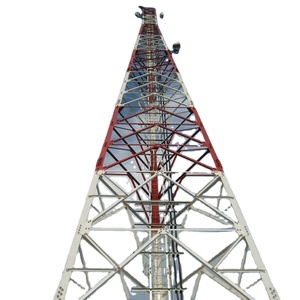



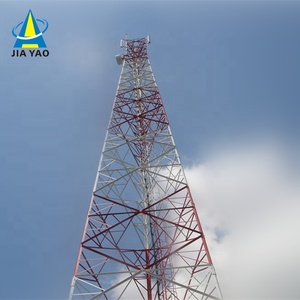






































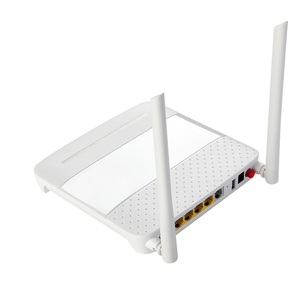



























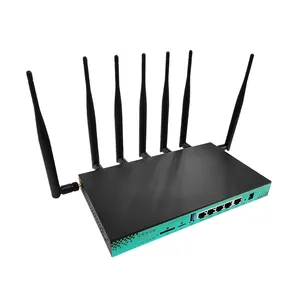





















































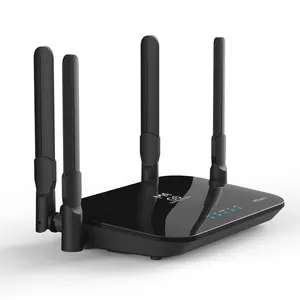































An Internet Service Provider (ISP) is a company that allows customers access to the internet. The types of ISP's can vary depending on the technology used to connect to the internet.
The primary ISP, which can also be referred to as a Tier 1 ISP, has its infrastructure to connect directly to the internet backbone. In contrast, a reselling ISP, also known as a Tier 2 or 3 ISP, purchases internet access from a higher-level provider and sells it to customers. There's also the option of choosing a business or personal ISP, which is tailored depending on the customer's needs.
Important things to consider when choosing an ISP are costs, how much data can be used, and what connection speeds are offered. Other factors to consider are customer support and any options for being connected to the internet should technical issues arise. This is important to businesses because they need to be connected to customers and can't afford to have any downtime.
Choosing the right internet service provider is vital for getting exceptional internet performance. Internet service providers have different features that give customers various connectivity options.
Connectivity Types
ISPs offer different connection types. Dial-up connections use the telephone network; C, cable, and fiber-optic providers use cable television networks and telecommunications companies, respectively. Satellite ISPs beam signals from space, and wireless ISPs use radio waves to transmit internet access.
Plans and Packages
ISPs have different pricing packages that cater to different budgets and internet needs. They offer various internet plans that hit different data thresholds, ensuring users find something that suits their requirements.
Customer Support
Quality customer support is essential for promptly resolving technical issues or getting answers to questions. Internet service providers offer different tiers of onsite, phone, and online support.
Flexibility
An ISP may be a user's first choice, but they may need to stick with them longer due to contract rigidity. Many providers offer month-to-month agreements, which are great for customers who want to avoid long-term commitment.
Equipment
Modems and routers are essential devices internet providers give their customers to access the web. Some ISPs supply these devices for free, but others charge monthly rental fees. Some providers expect users to purchase their equipment, but they offer technical support to help them set it up and optimize its performance.
Network Coverage
The extent to which an internet provider can offer services is known as network coverage. Community geographic areas are included in this to which different types of customers can be reached. After evaluating coverage from various providers, businesses can choose one that suits their location.
An Internet Service Provider (ISP) is widely used in different sectors. Here are some notable applications:
Office Environment
ISPs facilitate smooth web browsing, which allows users to get information easily and fast. Additionally, they allow access to online services, which enable companies to conduct various business operations like banking. Moreover, ISP provides stable connection which is important for companies that offer remote services.
E-Commerce Platforms
An Internet Service Provider allows business to have stable internet connection which is very important for operation of e-commerce. Web hosting services are offered by ISP which enables businesses to run websites. Also, online payment service is facilitated by ISP which allows customers to make purchases in a secure and seamless manner.
Educational Institutions
ISPs enable educational organizations to have internet connectivity which is crucial for incorporation of internet in learning activities. Also, access to web which allows students and staff to get a vast resources that are educational. Additionally, during online classes and video conferencing, there is reliable and fast connection which facilitates sharing multimedia content.
Healthcare Facilities
In hospitals and other healthcare facilities, ISPs allow internet connectivity which is important for establishment of telemedicine. Internet service provider enables access to electronic health record systems that are essential in storing and retrieving patient's medical data. Moreover, communication between healthcare providers, patients and specialists is facilitated.
Industrial Sector
Other than human workers, telecom internet service provider empowers the Industrial Internet of Things (IIoT) by connecting machines, sensors, and devices. This facilitates data collection, analytics, and automation of industrial processes. A good internet provider allows real-time monitoring of assets such as vehicles in transit, equipment in the field, and inventory in the warehouse.
When looking for the right internet service provider (ISP), it is essential to remember specific criteria that can help one make the best decision for business needs:
Q1. Is there a difference between Wi-Fi and the Internet?
A1. Wi-Fi and the Internet are different but related technologies. Wi-Fi is a method of accessing the Internet through a wireless network, but the Internet is a global network of connected computers. To get connected to the Internet, one must have a router that uses a wireless network – Wi-Fi – to reach other devices like computers, laptops, and smartphones.
Q2. What is an Internet service provider (ISP)?
A2. An ISP is a company that provides access to the Internet. They are connected to the Internet through what is called peering arrangements with other networks. ISPs come in many forms, from telecommunications companies that own the infrastructure to regional network hubs to cable television providers that can transmit data over coaxial cables through wireless telephone companies using mobile networks.
Q3. How does Isp work?
A3. ISPs provide customers various connection types to access the Internet. Each connection type has its own speed, reliability, and cost. Once someone connects to the Internet through an ISP, traffic from their computer goes over that network and interconnected global web links.